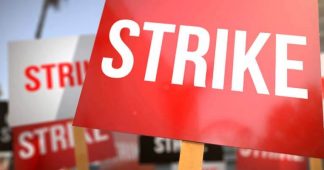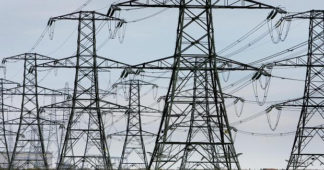By Sue Bull *
June 23, 2022
The energy crisis we didn’t need to have has put the question of a publicly-owned energy industry on the table for the first time in many years.
When the Australian Energy Market Operator (AEMO) suspended the wholesale electricity spot market on June 16, various commentators jumped in to debate energy industry nationalisation and what level of government intervention might be needed.
Ken Henry, a former Treasury secretary, made the surprising call for a tax on the windfall profits that energy companies make at the expense of households and manufacturers. He said the tax could be as high as 100%.
A windfall tax, Henry said, would “guarantee sufficient supply of gas for domestic users, both households and businesses, and of course it would have the additional benefit of generating very substantial revenue for the budget”.
While he wasn’t arguing for nationalisation, such an intervention from a former conservative bureaucrat shows how even a section of the establishment is critical of energy companies’ ruthless profiteering in the climate emergency.
The Greens and some unions, such as the Electrical Trades Union (ETU), argue the energy crisis requires an end to the failed energy privatisation policies. They reflect the views of the majority of working class people who are fed up with being ripped off by energy companies.
Queensland Greens MLA Michael Berkman said the AEMO’s decision to suspend the energy market was “thanks to the malice and incompetence of coal and gas companies, and thanks to the skyrocketing price of coal.”
He said electricity should “NEVER be subject to private profits” and the renewable energy industry should become 100% publicly owned.
Peter Ong, ETU Queensland secretary, made a similar call demanding the Queensland government “accelerate construction of public-owned renewable generation and storage assets”.
We have not seen this debate since the 1990s, when state governments sold off much of the community’s publicly-owned and -operated power industry assets. Despite opposition to electricity being sold off, they argued that competition to bring down prices was needed and “the market” would do this better. At the time, many socialists and unionists were involved in campaigns to stop the sell-offs.
We didn’t argue this because of how well the state was running energy companies, like the brown coal-fired power station at Hazelwood in the Latrobe Valley.
However, we knew then, and it remains the case, that the only way workers, communities and the environment have a chance of benefitting from lower energy prices amid a climate emergency is to bring the profit-driven private energy companies under public control, along with imposing accountability and transparency measures.
We knew that, in a private energy system, once the days of cheap, polluting brown coal were over, there would be even less chance of a fair transition plan — the redeployment and reskilling of energy workers and the replacement of coal with cheap renewable energy.
Sure enough that’s exactly what happened in 2016-2017.
Engie, which owned Hazelwood, was not making a profit so it shut down earlier than expected after years of concessions by the Victorian government. The workers lost their jobs and were left without serious redeployment opportunities. The community was poisoned by one of the longest-running industrial fires in Victoria’s history and the plant, riddled with asbestos, now haunts former workers.
If Hazelwood and other power plants had remained in public hands, but with workers having a much greater say, things would have been different.
Workers and communities need to be in a position to demand energy transition plans that shut down polluting and poisonous industries. They need to have access to new jobs, including with training, in publically owned renewable industries.
Despite the climate mandate it has been given, what has the newly installed Labor government learnt from the current debacle? Prime Minister Anthony Albanese wants to get back to normal because, he said, business wants “policy certainty in order to invest”.
A communiqué from the first meeting of energy ministers under the new government on June 8 made clear they would not take up the opportunity to get energy back into public hands.
“Energy Ministers have trust in the energy market bodies who operate and regulate the system, and will continue to receive regular briefings as the situation progresses,” the communiqué read, with a feather-duster warning to the energy corporations of their “obligations to the AEMO”.
The AEMO said on June 22 it will gradually remove restrictions to allow the market to set the price again.
So it’s business as usual. But the crisis has not been averted.
Workers, unions and climate activists must take up the fight for a publicly-owned power industry. If we don’t, people and the planet will not survive government collusion allowing energy corporations to continue their ruthless drive for profits.
* Sue Bull is a member of the Socialist Alliance national executive and a long-time unionist and environmental activist.
We remind our readers that publication of articles on our site does not mean that we agree with what is written. Our policy is to publish anything which we consider of interest, so as to assist our readers in forming their opinions. Sometimes we even publish articles with which we totally disagree, since we believe it is important for our readers to be informed on as wide a spectrum of views as possible.










